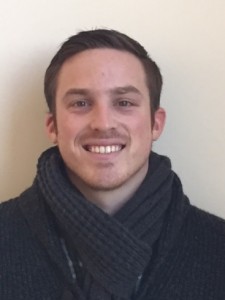Ally Ward, a graduate from Loughborough University, answers questions about a typical day in his job, work experience, career progression, and how you can get into the industry. 
He works at Sagentia, a global science, technology and product development services company.
Can you give us a bit of background on yourself? How long have you been working at Sagentia? What is your position there?
I studied a BEng in Product Design Engineering at Loughborough University. This combined materials science, mechanical engineering, engineering science, and industrial design. It was a great course for getting a solid understanding of different areas.
In my second year, I took part in the group product design project, the brief of which had been set by Sagentia. I didn’t know that product development consultancies existed at the time; in fact, as a student, I didn’t know where I saw myself after graduation.
With a bit of research into Sagentia, I discovered that they operate across a number of sectors. I decided to apply for a placement and was accepted after an interview process.
I spent my placement year working as part of the mechanical systems & design team, and was then offered a permanent position following completion of my degree. I’ve now been working at the company for 3 years and have progressed from Engineer to Consultant level.
What is a typical day like for you?
There genuinely isn’t a ‘typical’ day here. There is a huge variety both in terms of the types of tasks I do and the sectors for which I design products.
One day I might be working on designing a novel drug delivery system, and the next day developing a surgical instrument, or improving a manufacturing process for a global consumer product.
Generally, though, my role includes things like using CAD to design concept prototypes, test rigs, and ultimately deliver the final product to the client. All of these involve in-depth design reviews and technical problem solving.
I often work directly with clients around the world to understand their needs and present them with concepts and prototypes. Each project team is made up of people from different disciplines, so I’m working with a mixture of chemists, mathematicians, electrical engineers, physicists, and industrial designers, amongst others.
Did you always know this career path was for you?
No, I initially wanted to be a physiotherapist! It was at secondary school that I realised how much I enjoyed design technology, which led me to study engineering at university.
Did you gain relevant work experience during your time studying?
I decided to do a one year placement in my third year and would definitely recommend this to other students. Having the opportunity to experience how the industry works and apply what you’ve learnt at university is invaluable.
It really helped me both in my final year of studying and obviously when I started work after graduating.
What is the most challenging thing about your job?
In a consultancy environment, it’s probably balancing time, cost and value for the client. You need to understand what the client wants and be able to adapt to their changing requirements.
At Sagentia we’re working on cutting edge technologies and products, so as engineers we constantly have to challenge ourselves and our clients, pushing the boundaries of what can be done, or thinking differently about how we can apply existing ideas to new areas.
What do you enjoy most about your job?
It has to be the variety of projects I get to work on, though I also love the satisfaction you get from delivering a successful project to a client. There is a great sense of pride when designs that you have produced work as required and meet the client’s needs.
Over time it would be amazing to see some of my designs in the public eye, and with a lot of my work being in the medical sector I like to think that, on some level, I am helping people too.
Beyond that, I like the people and the company culture. You’re supported by an amazing group of people who encourage you to think outside the box, which often benefits your designs. I genuinely feel like I’m learning something new every day.
What is your career progression path like?
Sagentia has a graduate scheme that supports your development when you join from University. At a graduate level you get the chance to try lots of different things and really discover what you’re good at.
Since joining I’ve progressed to the Consultant level and am now focusing on getting a broad range of technical knowledge and experience, to enable me to design products for different industries.
Looking ahead, I intend to follow a technical career path, focusing on delivering projects to clients, as that is what I really enjoy. There are also opportunities to go down other routes, such as project management or commercial.
Do you have any advice for students who are looking to get into the industry?
Getting undergraduate experience is invaluable, so I’d definitely recommend a placement if you get the opportunity. I also think that doing relevant projects outside of your studies, which show your passion for product design and engineering, will help when it comes to applying for jobs in this industry.
It is always impressive when you see students come in with their own Kickstarter project or a well-documented portfolio, whether that is undergraduate work or personal projects. Those sorts of things usually speak volumes about the candidate.
Visit the Sagentia website to learn more about graduate career opportunities, development and current vacancies.


Leave a Reply